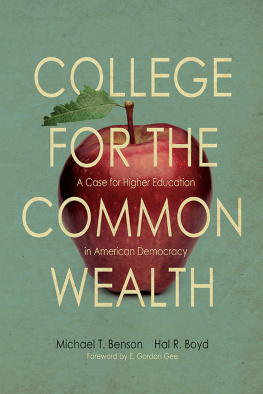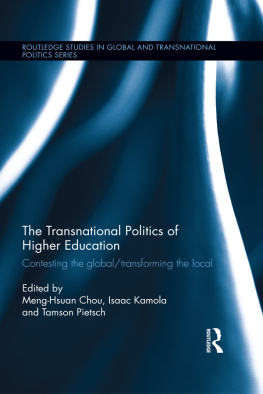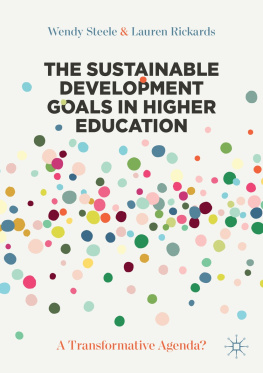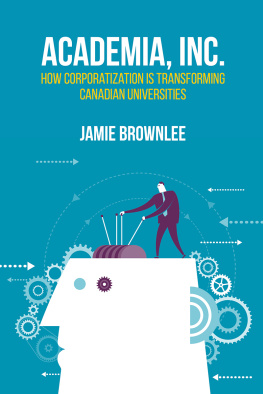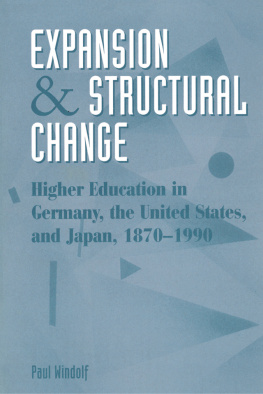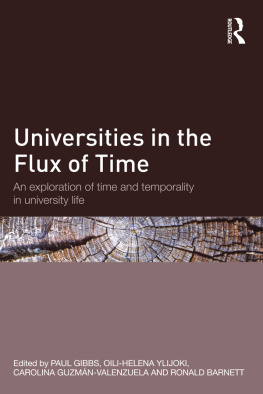This is an important and timely book. The modern university was formed in the last decades of the 19th century. However, its collegial organization facilitated a later adaptation of knowledge and culture toward democratic purposes. Lybeck shows how recent re-organization along managerial lines has shifted the university toward private interest in human capital and service to the knowledge economy. It represents an educational counter-revolution with profound implications for society and culture.
John Holmwood, University of Nottingham, UK
The University Revolution
Few institutions in modern society are as significant as universities, yet our historical and sociological understanding of the role of higher education has not been substantially updated for decades. By revisiting the emergence and transformation of higher education since 1800 using a novel processual approach, this book recognizes these developments as having been as central to constituting the modern world as the industrial and democratic revolutions. This new interpretation of the role of universities in contemporary society promises to re-orient our understanding of the importance of higher education in the past and future development of modern societies. It will therefore appeal to scholars of social science and history with interests in social history and social change, education, the professions and inequalities.
Eric Lybeck is Presidential Fellow at the University of Manchester, UK, and co-editor of Sociological Amnesia: Cross Currents in Disciplinary History. He is editor-in-chief of the open-access journal, Civic Sociology.
Classical and Contemporary Social Theory
Series Editor
Stjepan G. Mestrovic, Texas A&M University, USA
Classical and Contemporary Social Theory publishes rigorous scholarly work that re-discovers the relevance of social theory for contemporary times, demonstrating the enduring importance of theory for modern social issues. The series covers social theory in a broad sense, inviting contributions on both 'classical' and modern theory, thus encompassing sociology, without being confined to a single discipline. As such, work from across the social sciences is welcome, provided that volumes address the social context of particular issues, subjects, or figures and offer new understandings of social reality and the contribution of a theorist or school to our understanding of it.
The series considers significant new appraisals of established thinkers or schools, comparative works or contributions that discuss a particular social issue or phenomenon in relation to the work of specific theorists or theoretical approaches. Contributions are welcome that assess broad strands of thought within certain schools or across the work of a number of thinkers, but always with an eye toward contributing to contemporary understandings of social issues and contexts.
Titles in this series
The Detective of Modernity
Essays on the Work of David Frisby
Edited by Georgia Giannakopoulou and Graeme Gilloch
Global Economic Crisis as Social Hieroglyphic
Genesis, Constitution and Regressive Progress
Christos Memos
The University Revolution
Outline of a Processual Theory of Modern Higher Education
Eric Lybeck
For more information about this series, please visit: https://www.routledge.com/sociology/series/ASHSER1383
First published 2021
by Routledge
2 Park Square, Milton Park, Abingdon, Oxon OX14 4RN
and by Routledge
52 Vanderbilt Avenue, New York, NY 10017
Routledge is an imprint of the Taylor & Francis Group, an informa business
2021 Eric Lybeck
The right of Eric Lybeck to be identified as author of this work has been asserted by him in accordance with sections 77 and 78 of the Copyright, Designs and Patents Act 1988.
The Open Access version of this book, available at www.taylorfrancis.com, has been made available under a Creative Commons Attribution-Non Commercial-No Derivatives 4.0 license.
Trademark notice: Product or corporate names may be trademarks or registered trademarks, and are used only for identification and explanation without intent to infringe.
British Library Cataloguing-in-Publication Data
A catalogue record for this book is available from the British Library
Library of Congress Cataloging-in-Publication Data
Names: Lybeck, Eric Royal, author.
Title: The university revolution : outline of a processual theory of modern higher education / Eric Lybeck.
Description: Abingdon, Oxon ; New York, NY : Routledge, 2021. | Series: Classical and contemporary social theory | Includes bibliographical references and index.
Identifiers: LCCN 2020057015 (print) | LCCN 2020057016 (ebook) | ISBN 9781138497900 (hardback) | ISBN 9781351017558 (ebook)
Subjects: LCSH: Education, Higher--Aims and objectives. | Universities and colleges--History. | Educational change.
Classification: LCC LB2322.2 .L93 2021 (print) | LCC LB2322.2 (ebook) | DDC 378--dc23
LC record available at https://lccn.loc.gov/2020057015
LC ebook record available at https://lccn.loc.gov/2020057016
ISBN: 978-1-138-49790-0 (hbk)
ISBN: 978-1-032-02032-7 (pbk)
ISBN: 978-1-351-01755-8 (ebk)
DOI: 10.4324/9781351017558
I began writing this book in 2016 with a simple question: Why do we have modern universities at all? At some point, a handful of monks and priests attended the cloisters of medieval colleges. Today, over a billion people have higher degrees. We take this very much for granted, and yet this huge expansion of higher learning is among the few aspects of modernity that are truly unprecedented in human history. So, I returned to that history to find out why this happened in the first place.
In doing so, I realised that much history and sociology of education makes an error many think the history of education is primarily about exclusion and domination. Education does, of course, exclude at times; and the institutional expansion of modern universities would not have occurred without the pressures of imperialism and class conflict. But, at root, the history of education is the history of expanding access to education that is, increasing the social fund of knowledge.
This means that education began somewhere it had a centre; an elite; a tradition and that exclusive system became something else over time. Our current system is in the process of becoming something else right now and will be different again tomorrow. More students will be educated. More knowledge will be produced, changed and forgotten.
Universities represent the promise that we might someday get a handle on that knowledge. We might obtain the truth. We wont. What we can learn is how to use knowledge as a means of orientation as an aid in our own collective and individual actions. But, in producing knowledge at such a pace and with such complexity, we cannot help but produce ignorance at the same time ignorance of facts and things, but also of one another.
I thought I could answer the question I set out to address but, I regret to say, I have not found the truth. I have, however, found a way of orienting myself to the history of modern higher education and its place within modern society. This may or may not be useful to others, but I have recorded some of my initial thoughts here for reference, assistance, criticism, dialogue and correction. With any luck nay, inevitably I will know more tomorrow. I can therefore only apologise for any errors and oversights in the meantime.




